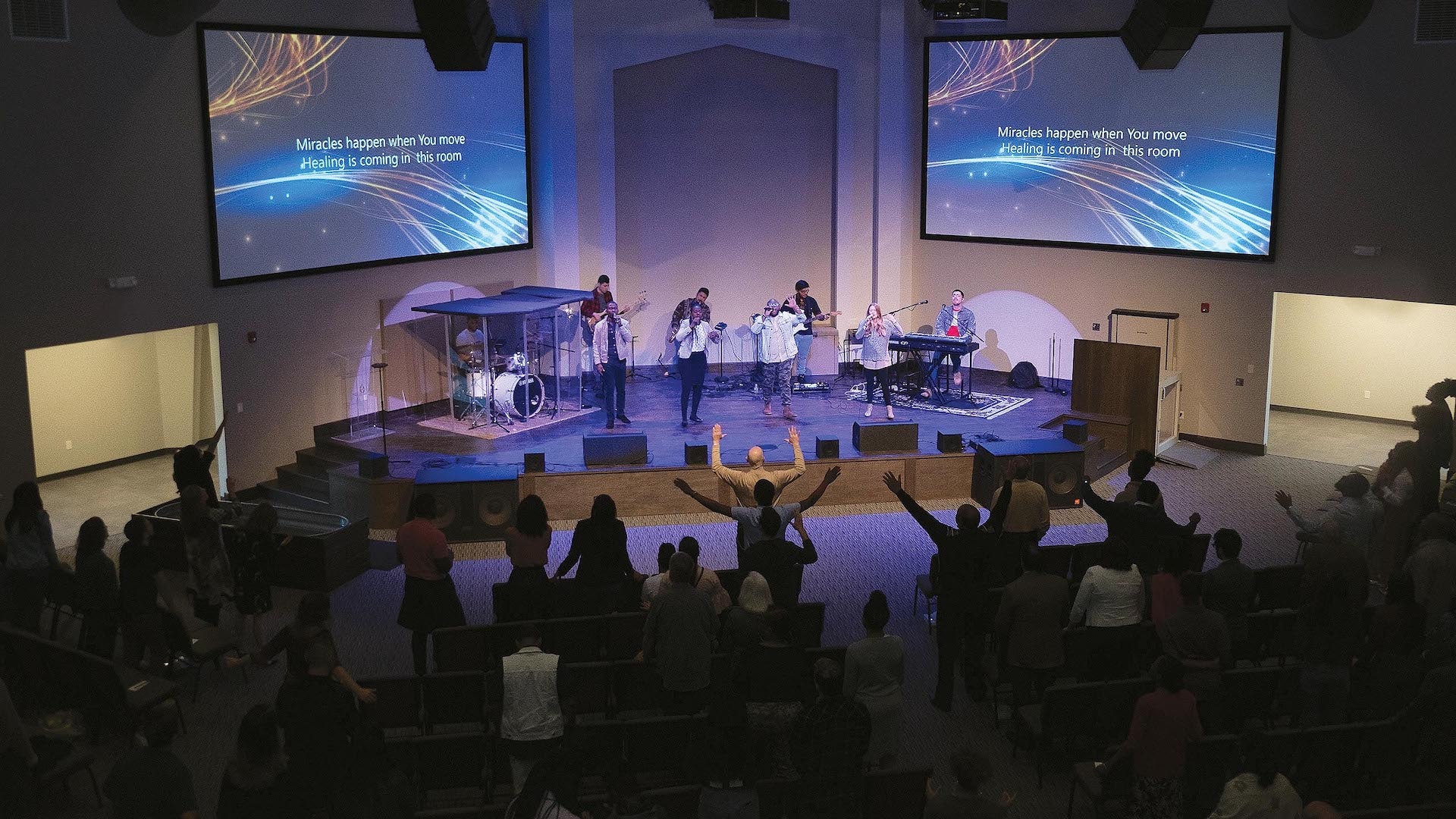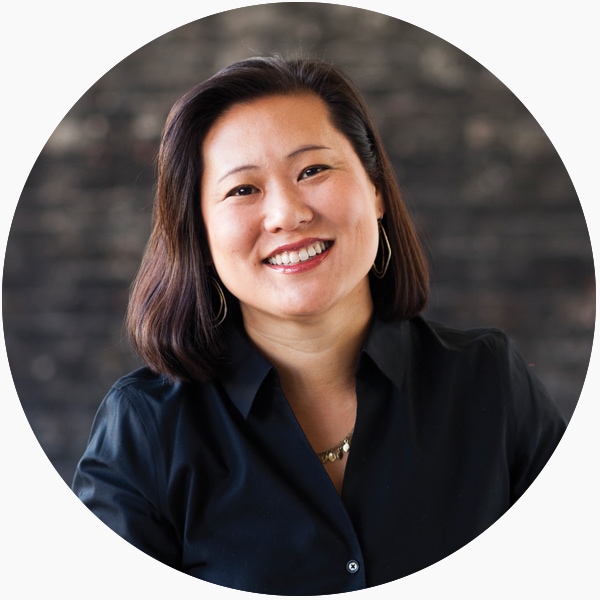How ten congregations, representing a multitude of nations, languages, and faith experiences, have found a church home together.
At 11:00 on a Sunday morning in Texas, the large two-story building of Kingdom City Houston is bustling. Las Buenas Nuevas Covenant Church, led by pastors Alejandro and Vilma Carrizo, has concluded its morning service and the worshipers wander outside to join a birthday party on the lawn for Pastor Vilma. The smells of the carne asada taco feast are already wafting into the building.
Inside, a group from the international congregation of Woven Covenant Church are enjoying fellowship and snacks after their worship service, led by musicians from Angola, Brazil, and Korea. The congregation, which was planted in 2014 by Wayne and Ashley Park along with friends from the Korean American community, leaves their worship space through the fellowship hall doors. As soon as their service ends, the people of Gateway International Christian Church, wearing traditional Liberian clothing, start filling up the space to begin their African worship service.
High-energy music reverberates from the main sanctuary over the crowds of people entering and exiting, signaling the beginning of Ashford Community Church’s service. Young adults are enjoying the music, simultaneously dancing, singing, and serving coffee at the espresso bar in the lobby.
Barnabas Church, an African American congregation, has also just ended their morning worship upstairs and are cooking a meal together across the yard.
Kingdom Life Church, a Nigerian congregation, is anticipating the community they will join when they begin worshiping at Kingdom City soon.
A roomful of teens, from several congregations, are bursting with energy as they talk, laugh, and share videos on their phones. Upstairs, students are painting their new room, many of whom seem to be getting more paint on themselves than on the walls.
“The intermingling and fellowship between such diverse people groups beautifully illustrates how many theological and cultural streams of Christianity flow together into the great river of God’s kingdom.”
Sunday afternoons, pastor Carlos Palenca leads Nova Vida Church, a Portuguese-language congregation composed of people from Brazil and Angola.
“For me, the flow of people in and out of services and the intermingling and fellowship between such diverse people groups beautifully illustrates how many theological and cultural streams of Christianity flow together into the great river of God’s kingdom,” says Margie Swenson, chair of the Kingdom City Houston council. She and her husband, Baxter, served as Covenant missionaries and co-directors of global personnel for Serve Globally until their retirement in 2017.
In all, ten international congregations worship independently under the collective banner of Kingdom City. Meeting throughout the week are also an East Indian Telugu-language congregation, an East African Swahili congregation (Nations of Praise), and a Congolese French-speaking church plant. Two of the ten congregations are members of the Evangelical Covenant Church.
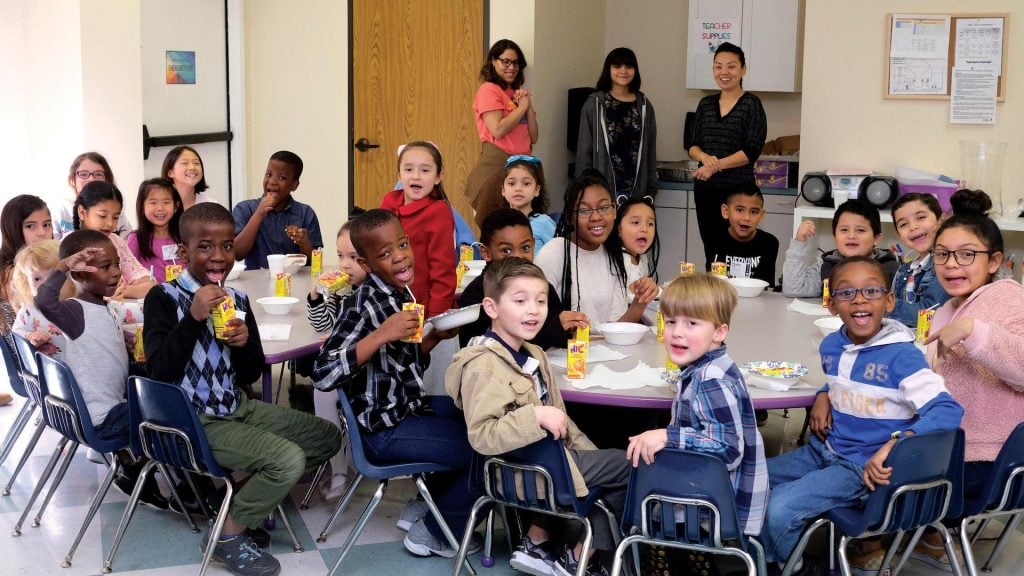
Kingdom City launched in January 2016 with what seemed to be a missed call from God.
John Parks, a minister who had served with the Assemblies of God, sensed God calling him to become an international pastor. Following that call, he resigned from the church he was serving in the Houston area, and he and his wife began making plans to plant a congregation in Tel Aviv. Then their visas fell through.
As they were reconsidering next steps, Parks was invited to take a pastoral role in a community church in the heart of the Houston energy corridor. The congregation had experienced a leadership crisis and was struggling to maintain a large, unfinished building on eight acres in a prime location. Parks agreed to serve Ashford Community Church as their pastor. “With the endorsement of the elders, we decided from day one that this would be an international church,” he says.
Slowly a team formed. The call God had placed in Parks’s heart began to take shape in his own backyard. When asked why an international church, Parks responds, “It’s a physical expression of Jesus’s prayer that we all would be one, that we would set at his feet all our prejudices and proclivities, our hearts and preferences for our own ethnicities.”
Soon Kenneth DeVon joined the team. Serving as a worship leader at a nearby megachurch, DeVon knew Parks and considered him a spiritual father. When he first came to Ashford, DeVon says, “I looked around and thought it was a ghost town. There were like 30 people. I told John this was crazy.”
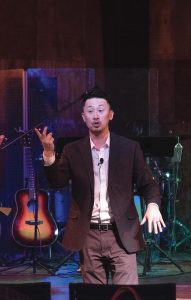
Now DeVon serves as a resource for the worship teams of several Kingdom City congregations and as senior associate pastor of Ashford Community Church. He says, “Kingdom City for me is an international mission base for families and immigrants. It’s a resource center. It is more than a fellowship of believers. It is
a lighthouse, an international center for all nations to be raised up and sent out.”
The first congregation to join the project was Las Buenas Nuevas Covenant Church, a large congregation of Latinos from many countries, including Honduras, Colombia, Ecuador, Panama, Argentina, Nicaragua, Puerto Rico, Mexico, Guatemala, El Salvador, Chile, Costa Rica, Cuba, Venezuela, and others. Sometimes people who strongly identify with their home country feel a strong sense of nationalism, pastor Alejandro Carizzo says, and that can lead to infighting. “But we teach from the beginning that we are all under the banner of the kingdom,” he adds.
After worshiping in different rented spaces for 12 years, Las Buenas Nuevas joined Kingdom City in March 2016 after Parks and Carizzo realized they share the same kingdom vision. With help from Las Buenas Nuevas and Garth Bolinder, superintendent of the Midsouth Conference of the Evangelical Covenant Church, a National Covenant Properties loan was procured to pay off the church mortgage and to complete the build-out.
“It’s a model of how churches can live in unity… We have to learn to lead from ‘among’ rather than ‘above.’”
At the time, only a small percentage of the building’s 40,000 square feet was usable space. As word spread and more congregations joined the collective, Kingdom City was able to build out more space and convert the shell of the main sanctuary into a worship space. Today the leaders say it was actually a blessing that the main sanctuary was just an empty space when Hurricane Harvey hit in 2017. The space became a relief distribution center for Covenant World Relief and the Love Mercy Do Justice mission priority. In the aftermath of the hurricane, Kingdom City housed multiple Covenant and non-Covenant mission teams who contributed human and financial resources to much needed relief and rebuilding.
Today Kingdom City is made up of multiple congregations, several of which are actually international churches in their own right. Las Buenas Nuevas serves multiple nations with diverse cultures. Ashford is international, and Woven, previously a Pan-Asian congregation, has become international as well. Nova Vida has members from Portugal, Brazil, and Angola, and Nations of Praise has folks from multiple East African nations. In essence, Kingdom City forms an international cooperative.
With so many churches working under one roof, logistics can be complicated, so the Kingdom City Houston Council was formed as a kind of pastoral care team. The council, made up of pastors and lay leaders, meets weekly to pray together, seek God’s leading, address conflicts, and work through details of ministry. “Bridge” ministries also serve all the Kingdom City congregations. Led by multi-congregational teams, these ministries currently focus on young adults, high school and middle school-aged youth, children, addiction recovery, and facility management. Twice a month, leaders of the bridge ministries meet with the council to celebrate what God is doing and to talk through any issues they are facing.
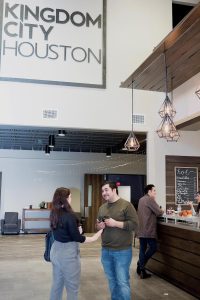
And the churches cross-pollinate. On a Sunday morning a young woman with a vision for clean water shares her passion in both Ashford and Las Buenas Nuevas services. Members from multiple churches buy items at the coffee bar, which helps support shared mission outreach. Couples from one congregation participate in a marriage development class taught by folks from another congregation, and a recovering addict from one congregation is referred to the recovery ministry of another.
They are also discovering the richness of their theological differences as they recognize that being “one in Christ” doesn’t mean they necessarily agree on every point theologically. Yet they say they are learning to celebrate those differences and learn from one another. “At times it can be difficult work,” Margie Swenson says. “We are learning to slow down and listen carefully to one another. As we nurture interpersonal relationships between pastors and as congregations work together on common projects, the differences feel less important.”
“One of the attractions of Kingdom City is that every leader humbly seeks to never be motivated by a personal agenda,” says Baxter Swenson, who also serves on the council. “We desire to see God’s kingdom grow and kingdom values to be reflected in our own lives and in each congregation.”
Pastor Vilma Carrizo says, “The center is God. Things are multiplying in every congregation. No one is there to wave their individual banner.” Alejandro Carrizo chimes in, “In Latin America, we pastors tend to be controlling and try to guide everything. At Kingdom City we are learning to work in a different way. It is often difficult to deny our own ambitions, so it is a blessing to work together in a model that emphasizes unity.”
Kingdom City is a gift for a small church plant such as Woven, says pastor Wayne Park. “When you work this way, you don’t feel so alone. You feel like you are a part of something bigger than just your own church. It isn’t territorialism. This is intentional collaboration.”
DeVon says he hopes other churches can adopt Kingdom City’s model. “It’s a model of how churches can live in unity, learn what it looks like to live among each other. We have to learn to lead from ‘among’ rather than ‘above.’ We have to figure out how to listen.”
Bolinder calls Kingdom City a “koinonia” experience. “But it isn’t a seamless operation. Each church has its own priorities on what they feel the next project should be or where money should be spent. Money priorities tops the list of subjects that create tension.” The diversity of language and culture can also create challenges. “Language can be an issue, even between spouses,” says Baxter, “but then you consider the many languages spoken at Kingdom City, and it gets really complicated when you talk about things like finances.”
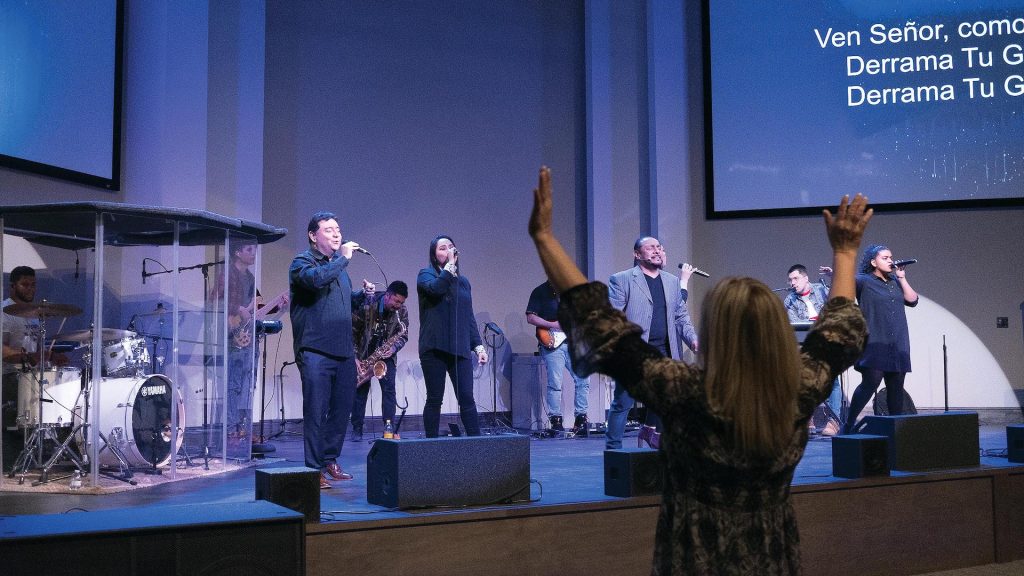
As well, demands on the facility itself are significant. What may be a high value for one culture may be less important for another. “Differing cultural values reflected in the use and care of our shared space can either hinder what God is doing, or it can cause us to humbly seek understanding, communicate, and adjust our values and expectations. We choose to trust one another, to believe the best about each other’s motives for the sake of the kingdom,” Baxter says.
As former operations director Katherine Holliday says, “I’ve been pushed to continue to learn that people always come first, more than projects. I am learning to build relationships with each person to make sure we are all on the same page.”
Kingdom City is strategically positioned to be a destination for people of many nations to come together for worship. Houston is now one of the most diverse cities in the United States, with at least 330 different ethnicities and 235 languages and dialects. The international growth is due to the booming energy corridor, the densely populated business district of greater Houston that houses large corporations such as BP America, Citgo, ConocoPhillips, and Shell Oil Company. Additionally, many universities have significant international student populations who add to the growing numbers in the city. At a recent meeting, someone said, “Houston is ripe for a fresh Pentecost!”
“So many people are captivated and changed by what is happening,” Parks says. “Houston is becoming a ‘city of God’ and the congregations of Kingdom City Houston will model his kingdom for all the world to see.”


